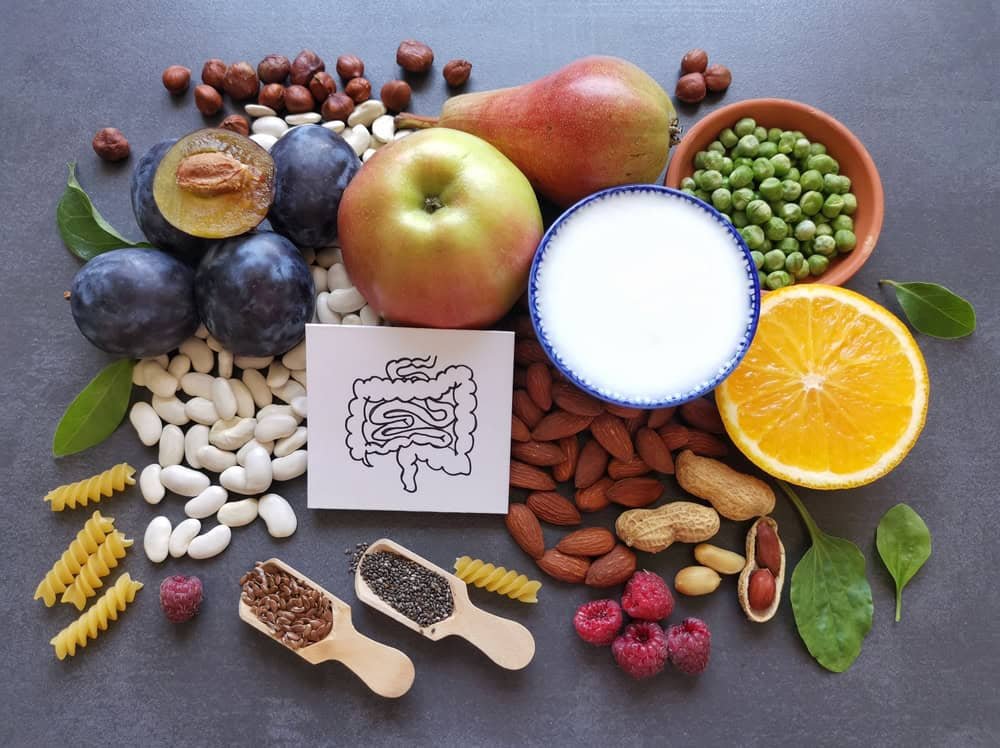5 Natural Ways to Improve Gut Health

A healthy digestive system is the foundation of your overall wellness. It breaks down food, absorbs nutrients, supports your immunity, and keeps your energy levels stable. But modern habits, including stress, processed foods, lack of sleep, and irregular eating patterns, can easily upset this balance. This results in bloating, indigestion, fatigue, and even mood swings.
The good news is that your gut can heal naturally. With small, mindful lifestyle changes and the right nutrition, you can rebuild your healthy gut microbiome and enjoy long-term digestive wellness.
In this article, we’ll explore five proven and natural ways to strengthen digestion, nurture a healthy gut microbiome, and achieve lasting digestive balance.
1. Eat a Gut-Friendly Diet
Your diet is the most powerful tool for maintaining digestive health. A gut-friendly diet includes natural, fiber-rich, and fermented foods that support the growth of beneficial bacteria.
Good foods to help your digestion:
- Fruits and vegetables: Fiber-rich foods like bananas, apples, spinach, and carrots promote regular bowel movements
- Whole grains: Brown rice, oats, and quinoa provide prebiotics, the fuel for your gut bacteria
- Fermented foods: Yogurt, kefir, kimchi, sauerkraut, and kombucha are natural sources of probiotics that help maintain a healthy gut microbiome
- Legumes and beans: Chickpeas and lentils are excellent for digestion due to their high fiber content
- Healthy fats: Olive oil, nuts, and avocados can help reduce gut inflammation
Avoid ultra-processed foods, excessive sugar, and fried foods, as they can disrupt the balance of good bacteria and lead to digestive issues such as bloating, acidity, and constipation.
Dr. Deep Goel explains, “What you eat directly shapes your gut microbiome. Diets rich in plant-based fiber and fermented foods improve gut diversity, while excessive sugar and processed foods harm it.”
2. Include Probiotics and Prebiotics in Your Diet
Both probiotics and prebiotics are essential for maintaining a balanced and healthy digestive system.
Probiotics: The Good Bacteria
Probiotics are live microorganisms that keep your gut balanced and healthy by:
- Improving nutrient absorption
- Supporting immunity
- Preventing harmful bacteria from growing
Common probiotic-rich foods include curd, kefir, kombucha, and fermented vegetables.
A patient of Dr. Deep Goel shared, “I had suffered from bloating and irregular bowel movements for over three years. When I consulted with Dr. Deep Goel, he suggested following a gut-friendly diet and incorporating probiotics. Within three months, my digestion improved, and the discomfort disappeared.”
Prebiotics: The Food for Probiotics
Prebiotics are fibers that feed probiotics and help them thrive. Natural sources of prebiotics include garlic, onions, asparagus, and bananas.
Another patient of Dr. Deep Goel shared, “I had been on strong antibiotics for a sinus infection, which led to acidity, poor appetite, and constipation. After consulting with Dr. Goel, he recommended a combination of probiotics for gut health and fermented foods. In two weeks, my bloating had reduced. Now I include yogurt and fiber daily, and my gut feels healthy and stable.”
3. Stay Hydrated and Manage Stress
Your gut and brain are deeply connected through the gut-brain axis, and both hydration and stress management are key to improving gut health.
Hydration for Digestive Health
- Drink 8–10 glasses of water daily to help break down food and prevent constipation
- Try herbal teas like peppermint or ginger for natural relief
Mind and Gut Connection
Stress and lack of sleep can disturb your gut microbiome and trigger indigestion or IBS. To calm your mind and improve digestion:
- Practice deep breathing or meditation
- Sleep 7–8 hours every night
- Exercise or do yoga
- Limit caffeine and alcohol
By calming your mind, you also create a healthier environment for your gut to function optimally.
4. Maintain a Consistent Eating Routine
When and how you eat is just as important as what you eat. Irregular meals can cause acid buildup, bloating, and indigestion.
Tips for a Healthy Eating Pattern
- Eat smaller, balanced meals throughout the day
- Chew food slowly for better digestion
- Don’t lie down right after eating — wait 2–3 hours
- Add fiber-rich foods daily
Developing mindful eating habits helps your body recognize hunger and fullness signals, one of the simplest ways to improve gut health naturally.
5. Lifestyle Changes and Supplements
If you frequently face bloating, IBS, or acidity, your gut may need healing.
How to Heal Your Gut Naturally
- Cut down irritants: Avoid processed foods, excess caffeine, and alcohol
- Add anti-inflammatory foods: Turmeric, green leafy vegetables, and omega-3 sources soothe your gut
- Try gut health supplements: Collagen peptides, digestive enzymes, or probiotics help repair the gut lining
- Move your body: Gentle workouts and walks stimulate digestion
- Sleep well: Rest promotes natural repair and improves gut health
With consistent habits, your digestive system can regenerate, restoring its natural balance and resilience.
Dr. Deep Goel concludes, “Healing your gut is not an overnight process. It’s a journey of consistent care through nutrition, hydration, and stress management. A healthy gut can transform your physical and mental health.
Final Thoughts
Your gut is more than just a part of your digestive system; it’s the powerhouse of your body’s health. By following these five simple steps to support your digestion, you can naturally improve your gut health.
A healthy gut leads to better digestion, stronger immunity, improved mood, and overall vitality. Start today, your gut will thank you tomorrow!
FAQs
1. How long does it take to improve gut health?
It can take 2–8 weeks of consistent changes, including diet, hydration, and probiotics, to notice significant improvements in gut health.
2. What are the best foods for gut health?
Fermented foods (yogurt, kimchi), fiber-rich fruits (bananas, apples), and whole grains (oats, quinoa) are the best foods for gut health.
3. Can stress cause digestive problems?
Yes. Stress affects the gut-brain axis, leading to bloating, acid reflux, or IBS symptoms. Relaxation techniques can help maintain a healthy digestive system.
4. Should I take gut health supplements?
You can consider gut health supplements or probiotics if your diet lacks balance or after antibiotic use, but always consult your doctor first.
5. How do I know if my gut is unhealthy?
Common signs include irregular bowel movements, fatigue, bloating, food sensitivities, or frequent infections. Consulting a gastroenterologist, such as Dr. Deep Goel, can help identify the root cause.
Explore more blogs: The Role of Physical Activity in Keeping Your Digestion Strong

